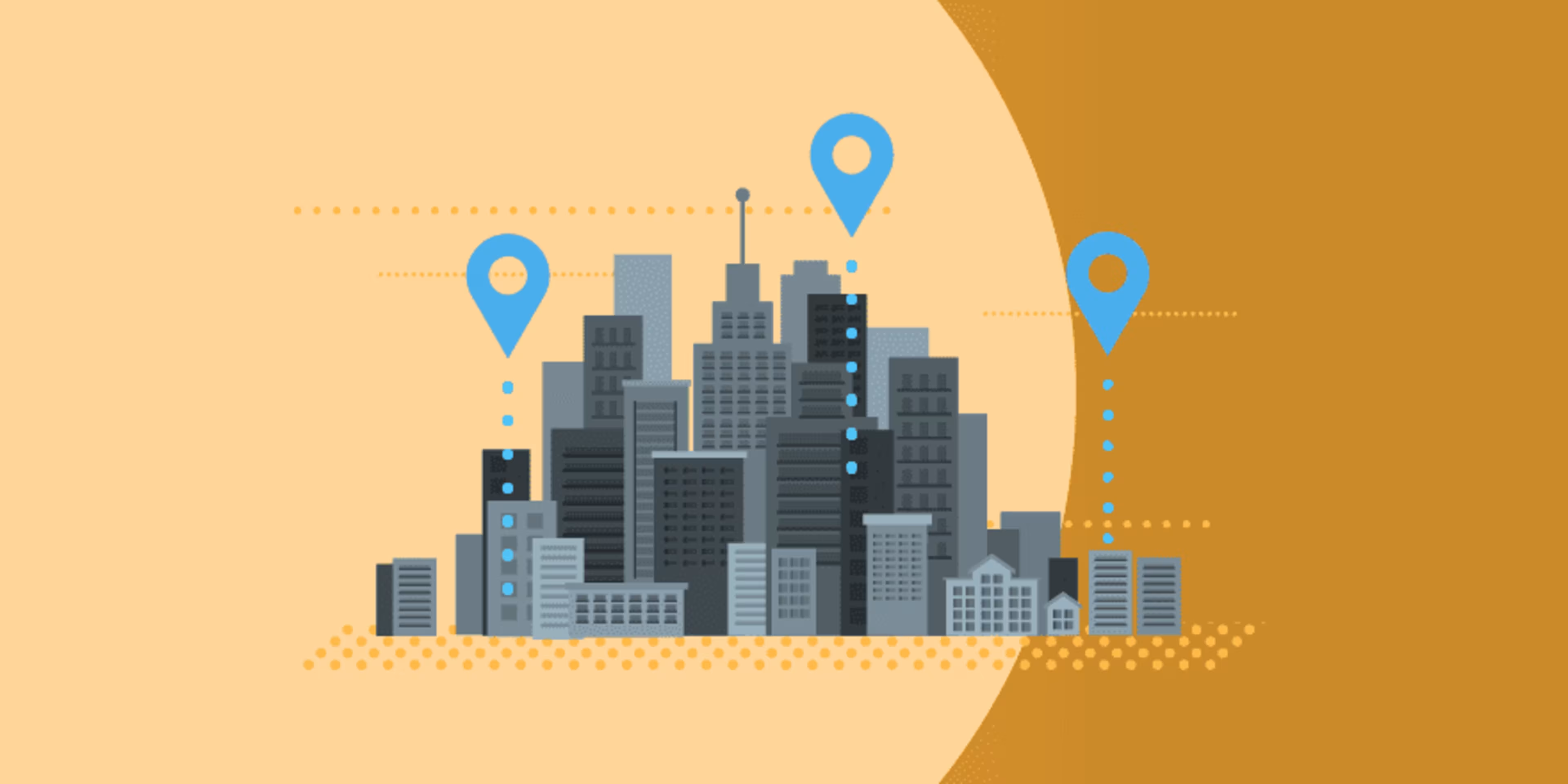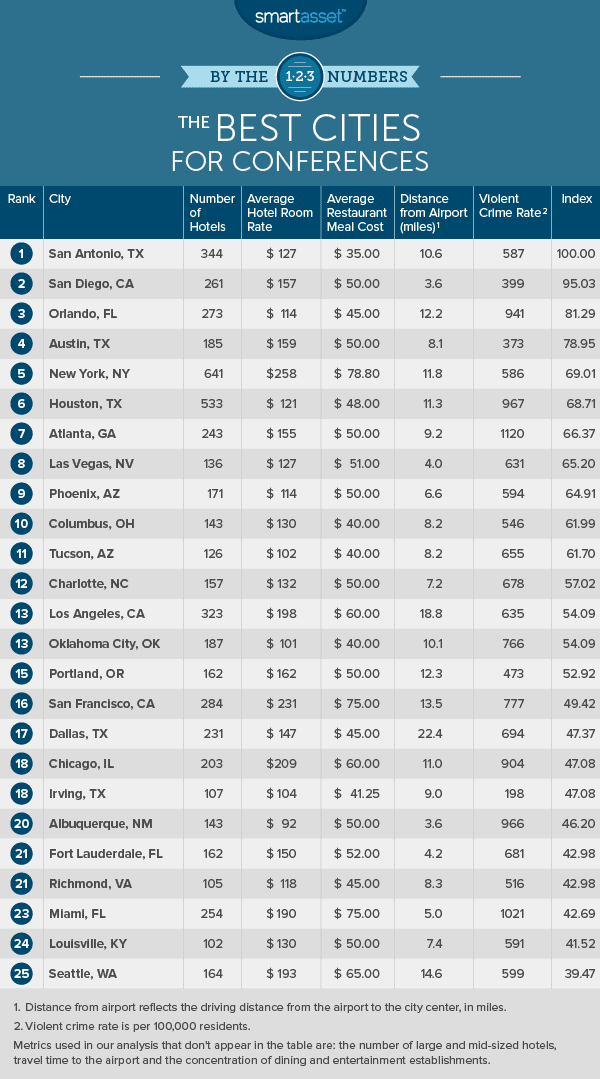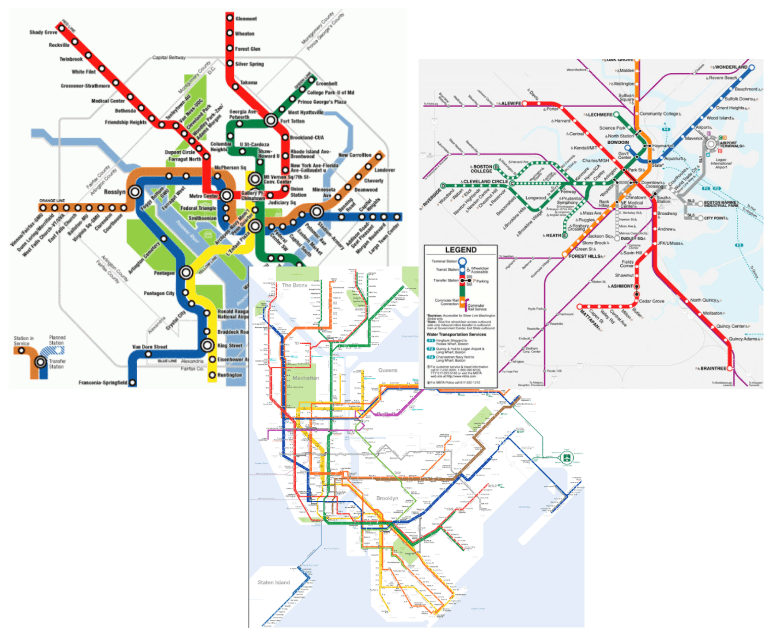Attendees expect a lot out of their event experience these days. Hotel meeting rooms have transformed into large cruise ships at Dreamforce, leaving attendees in awe. But these amazing venues are nothing without the foundational aspects that make the venue right for the event.
There's more to choosing an event venue than finding one of the right size (although that is part of the process).
There are several boxes you must check off before committing to an event venue: technological needs, logistical hurdles, and, of course, the cost.
Who wants to attend an event at an inconveniently located or expensive location, all because you chose the wrong venue? Your headline-grabbing speaker won't count for much without taking these factors into consideration.
I've put together a list of six crucial factors you need to consider when selecting a venue, along with tools and lists you can use to help make the selection process easier.

1. Convenient location for your attendees
The location of your event is one of the most important factors to consider in the planning stage. Potential registrants will take travel costs and convenience into consideration when deciding whether to attend.
If you're still in the early planning stages and aren't sure which city to choose for your conference, SmartAsset has a list of the top 10 conference destinations in the United States as of 2017 based on affordability, distance from airports, violent crime rates, and lodging availability:

SmartAsset's list of the top 25 destinations for conferences (Source)
Once you've determined the geographical location, you should base your venue selection on these criteria:
Price
Distance from airports
Transportation options (more on that later)
Capacity (also more on that later)
Access to downtown (restaurants, bars, hotels, etc.)
If you're hosting a smaller, local event, you won't need hotels to host dozens of out-of-state attendees, or easy access to an airport. When looking at local venues, your main concerns are the size of the venue, the cost, and transportation options.
The Cvent, SocialTables, and EventUp venue search engines are the perfect tool to find everything you need to know about venues nationwide.
2. Venue capacity and additional rooms
When choosing your event venue, it's always better to overestimate your capacity needs than underestimate.
For instance, if your event is expected to pull in at least 300 attendees, your venue capacity should comfortably fit 350 to 400 people. This will provide you with the breathing room you need to fit additional attendees if some show up and register on the day of.
It also helps to choose venues that offer additional breakout rooms. This kind of flexibility will help you when capacity issues arise. It isn't ideal, but it is possible to stream the main event to these breakout rooms as a means of fitting more people comfortably at your event.
Thanks to tools such as the Cvent venue search engine, you can research venue capacities before ever making contact with prospective venues. This way you can create your venue shortlist without being pressured to commit before you have all the information.
3. WiFi capabilities for large groups
We are living in an ever more connected world, and WiFi connectivity is a necessity for productivity in all forms of business, including events. It's important that you as an event planner and host have consistent connectivity to the internet. The best venues will have WiFi access available for your use on the day of your event.
However, the standard hotel connection available to all hotel guests might not be enough to handle all of the traffic for your guests. That's why it's important to inquire about a dedicated WiFi signal for your attendees. Most hotels will have a dedicated WiFi signal for events, but you should make sure.
WiFi speeds matter as well, especially if you plan on streaming video or expect heavy phone usage during the event for live tweeting and other social media uses. You should make sure that your data transfer speeds stay upward of 8 to 12 Mbps (megabits per second) to handle that higher level of traffic. Ask your venue about their speeds and if it's OK for you to run speed tests on their event network, just to be sure.
If you need to test the speed of a venue's internet, there are free tools made for just that:
Finally, let's get down to cost. WiFi at events isn't free, but it doesn't have to cost you a fortune. According to ASAE, there are a couple of ways you can help mitigate these costs:
Sell sponsorship of WiFi to an advertiser
Add on a fee for guests using WiFi
4. Transportation and parking options
What good is an event if no one can get there?
When selecting your venue, be sure to clarify all of the available transportation options, such as:
Metro rail services
Bus routes
Walking distances from hotels
Ridesharing availability (Uber, Lyft, Fasten, Sidecar, etc.)
Provide this transportation information to your guests, along with transit hours and recommendations for transit map apps.

Washington D.C., New York City, and Boston metro rail system maps (Source)
Some of these transportation options may even offer specials and discounts for event attendees. Uber, for example, offers their UberEvents system which allows you to create ride passes for your attendees. These ride passes will cover transportation costs up to a certain limit that you set, making it easier for your attendees to make it to your event.
While some may walk, take public transportation, or grab a rideshare to your event, many will still drive.
When considering venues, parking is another feature you should be on the lookout for. If the venue doesn't have designated parking, what kind of local parking options are available? Are there parking garages? Ample street parking?
You can make a deal with a local parking garage to reserve a certain number of spaces and include that cost in with a ticket deal for those who plan to drive. This also applies to paid garages owned by the venue where the cost of parking is added as a service, either at full cost or a discounted rate (preferably the latter).
If you don't feel it necessary to go that far to secure parking but still want to make driving convenient for your guests, try recommending parking apps on your event website that will help them locate affordable parking around your venue.
5. Amenities
What does your venue have to offer besides the space to host your event? These extra amenities can include:
A/V equipment: Renting or buying A/V equipment is expensive, and it helps save money when your event venue already has lighting, speakers, microphones, and video equipment ready for you to use. If so, the venue will most likely offer the equipment as part of a packaged deal.
Tables and chairs: Just like A/V equipment, providing your own tables and chairs means more money out of your pocket for rentals. Not to mention the transportation costs of moving all of these tables and chairs to the venue. It's better to find a venue with these amenities already in place.
Catering: If you plan on providing food to your guests, you can either contract with an outside catering service or take advantage of your venue's catering, if available. Depending on the venue, their food service may cost less money if packaged with the venue booking. Check with your local caterers to compare rates.
These amenities are all available using outside sources, but as mentioned before, if your prospective venues offer them, it's best to try to work out a packaged deal that may save you money in the long run.
6. Event date flexibility
Things don't always fall into place as you planned. Emergencies happen, weather doesn't always cooperate, and schedules don't always line up.
That's why it's important to select a venue that gives you some sort of flexibility in scheduling your event. For example, if your event may require a date change, it helps to book a venue with a few open dates around that time to use as rain dates.
Understand that this is a difficult ask for any venue and shouldn't make or break a deal since venues need full schedules to pay the bills.
But if you come across a venue with a few empty dates, try to work in a rescheduling policy for a later date for a discounted rate. This way the venue won't lose money on holding an extra date for you and you won't have to cancel an event if problems arise.
Since major events are always planned out months to a year in advance, giving your prospective venues a list of flexible dates will help you find when their non-peak dates are and find the date that'll save you the most money.
Check out these other event planning resources
Now that you've selected your event venue, be sure to follow the rest of the steps in my "Ten-Step Guide to Event Planning" to ensure the best event experience.